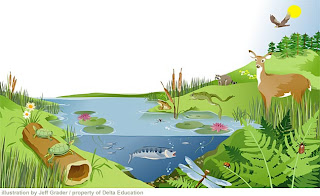Introduction:
The Count of Morcerf is the villain of the play 'Count's Revenge'. His actual name is Fernand Mondego and originally is a fisherman. He is a middle aged person. We know very little about his past or how he becomes a count. We find that he has a high position in the society and his wealth seems to have been secured by unfair means.
A traitor:
The French parliament condemned him a traitor on account of taking bride and handing over the fortress of Yanina to Turks, when he is in army. Thus he has no love for his country. Actually the worst enemy of his country has no courage to challenge the charges and out of the court like a mad man. This shows that he is a traitor and has grown rich at the cost of his country.
A conspirator:
Morcerf is very evil person. He marriage Mercedes treachouly. He hatches a conspiracy with the help of his friends to prove Edmond Dantes (Monte Cristo) to be a spy and an agent of the exiled Bonaparte. Morcerf and his friends produce false evidences and he is condemned to undergo life imprisonment for spying. In this way he tries to ruin Monte Cristo completely.
As a husband and as a father:
The Count of Morcerf is a cruel fellow. He behaves his wife in a mean way and therefore loses regard in the eyes of his wife as well as his son. When his wife, countess says to Monte Cristo, 'I was soon to find out how mean' and heartless he was", we come to conclusion that he has never been a good husband.
As a father he also fails to win the sympathy of his son. He does not try to stop Albert to fight a duel. He rather wants him to kill Monte Cristo in the duel and does not care for his son's life.
A coward person:
Morcerf is a coward person. When he is publicly disgraced, he does not try to take the revenge by himself but leaves the affairs to his young son, Albert. Albert deserts him by offering an apology to Monte Cristo, he himself resolves to fight a duel, but treachously takes out his pistol to kill Monte Cristo, but he himself is killed.
Conclusion:
On the whole, count of Morcerf is a villain. He is very cruel to get his aims by hook or by crook. He has no sympathy for any body. He seems to have secured wealth by unfair means and above all he is an unpatriotic, who deceives his own motherland for the selfish aims.


